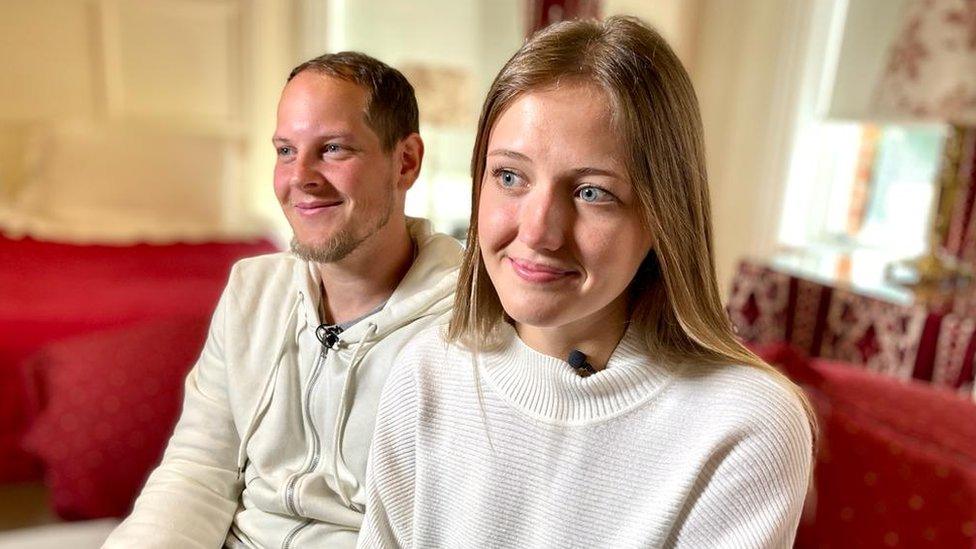Strategy needed to teach English to migrants, research says
- Published
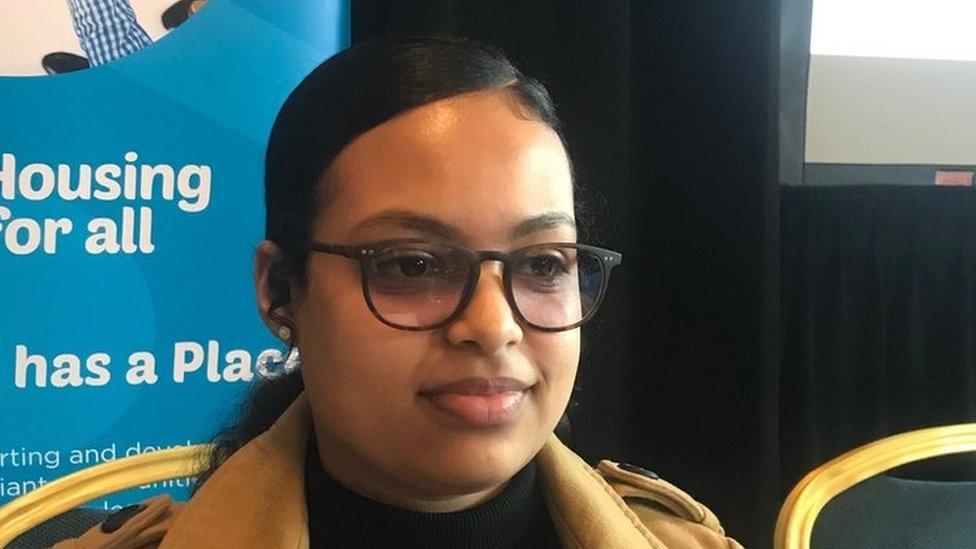
Kalkidan Afeworki is aiming to attend university to become a dentist
A Northern Ireland-wide strategy to teach English to refugees, migrants and asylum-seekers is needed, according to new research.
According to the 2021 census, almost one in 20 people here (4.6%) do not speak English as their main language.
Community groups which offer English classes report long waiting lists.
A number of migrants to Northern Ireland took part in research on learning English which was unveiled at Belfast City Hall on Thursday.
The research - Language Matters - looked at the provision of English for speakers of other languages (ESOL) classes run by community organisations.
It was carried out by Dr Donna Kernaghan of Stats & Stories among refugees, migrants and asylum seekers and community groups in the Donegall Pass, Markets and Lower Ormeau areas of inner city Belfast.
Many of its findings and recommendations are applicable beyond the city.
'Short-term approach'
Dr Kernaghan said the rising number of asylum seekers in Belfast had led to an increased demand for English language classes run by community organisations.
Her report said that, on average, community groups worked with speakers of 13 different languages - including Arabic, Polish, Somali and Syrian.
The primary motivation for people seeking to learn English was to integrate into the community in Belfast, and interact and socialise with their neighbours and others.
But about half of 17 community groups she spoke to relied on volunteers to teach classes as they could not get funding to employ a teacher.
Dr Kernaghan said the "short-term" approach to funding meant community groups were struggling to meet the demand for English classes.
Lack of childcare for parents attending classes was also highlighted as a major issue.
"Many community organisations were unable to provide creche facilities as they did not have a suitable room with enough staff or volunteers to care for young children," the Language Matters report said.
As a result, women especially could sometimes not attend language classes at times including the school holidays.
'Something to give'
The report said the Department for the Economy should set out an ESOL strategy for Northern Ireland which was evidence-based and fully funded.
That would enable English classes at an appropriate level to be available for any refugee, asylum seeker or migrant who needed them.
A number of those who were interviewed for the research spoke to BBC News NI at the report launch.
Kalkidan Afeworki came to Northern Ireland from Eritrea, and aims to go to university to study to be a dentist.
She attended classes with the Lower Ormeau Residents Action Group (LORAG) in Belfast to learn English, and also goes to Belfast Metropolitan College.
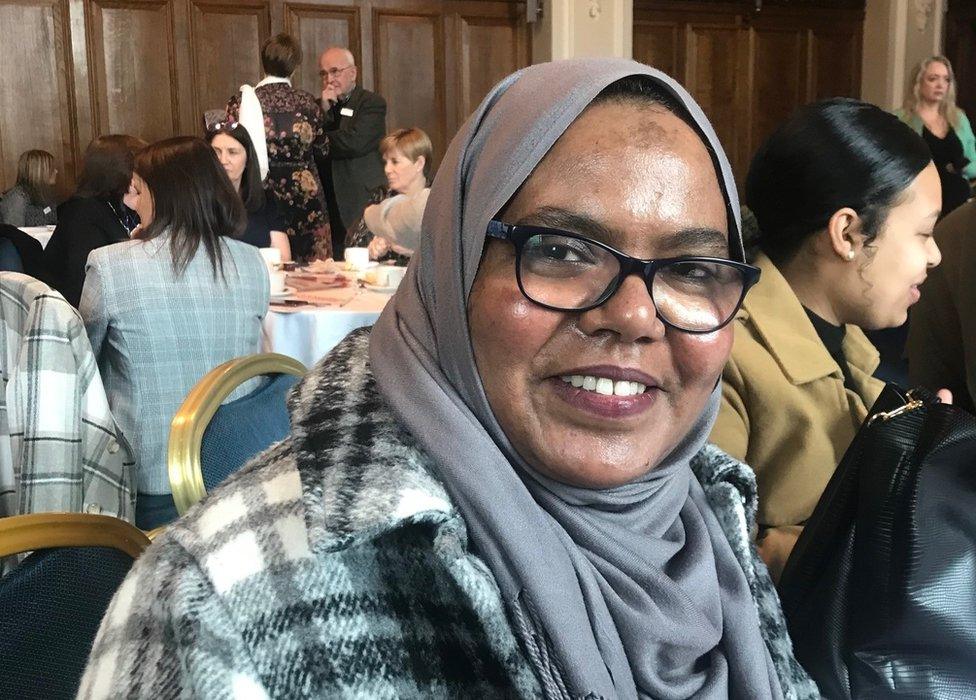
Sara Mustafa says she is getting used to the Belfast accent
"As I decided to live here, I should have to know English more," she said.
"The classes in LORAG give you an opportunity to participate, to do stuff.
"There's a diversity of people here, immigrant people - we have something to give to the community.
"It's a lovely community that we have here in Belfast but as well we should have to give something to the community, a new thing.
"That's why it's important to know English more and to participate in things."
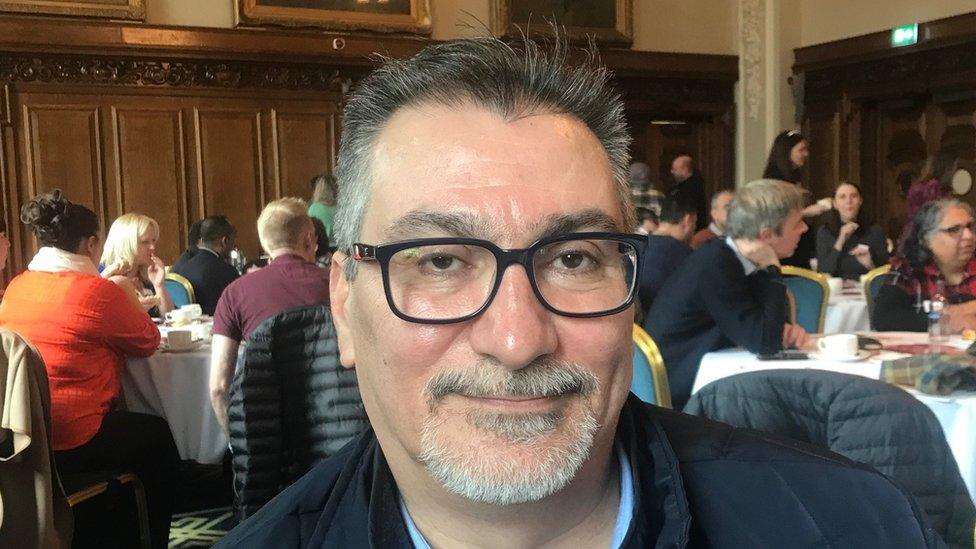
Syrian journalist Khaled Zalitou hopes to better his English and start reporting in Northern Ireland
Sara Mustafa came to Belfast from Sudan in 2017 and also learned English in classes at LORAG.
"I have children and I had to help them," she said.
"But now my children help me as they get language faster than adults!
"I need to learn English for everything from the GP, to communicate with neighbours."
She also said that learning English had helped her get to know local people.
"I can hear the accent from local people and I can understand now," she said.
"They have a difficult accent but I'm getting well with it!"
'Illogical at first'
Sara wants to set up her own business in Belfast and hopes to have time to do that now that her children are getting older.
Khaled Zalitou is a former television journalist from Syria, who had interviewed stars like Pavarotti and Omar Sharif.
He speaks five languages, and said he attended every English class he could find when he arrived in Belfast including at the Donegall Pass Community Forum.
"English is a little bit harder for me as it needed special concentration," he told BBC News NI.

Community groups offering English lessons are experiencing long waiting lists in Northern Ireland
"It seemed illogical for me at first but now I start to feel the English language because of all those classes.
"The English language here is different from London, is different from the US, is different from Canada.
"Learning English you can build your future.
"I am not young but I'm still looking to find a better job for myself."
Khaled is hoping to get back into journalism in Northern Ireland.
"English is the first step, the basic thing to start your life," he said.
"Through the language you will go to the culture of this country.
"The language is the one face of any nation or any place where you live."
- Published5 December 2022
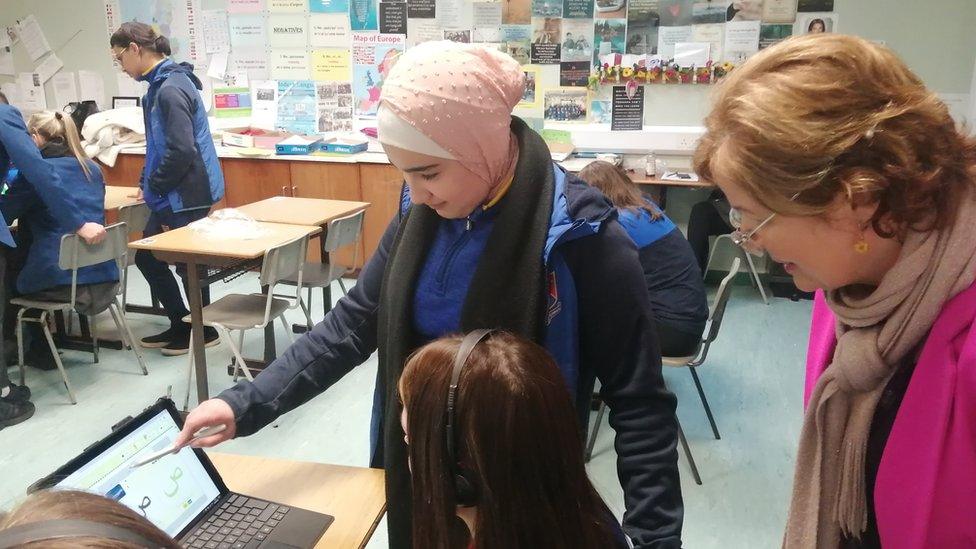
- Published16 June 2019
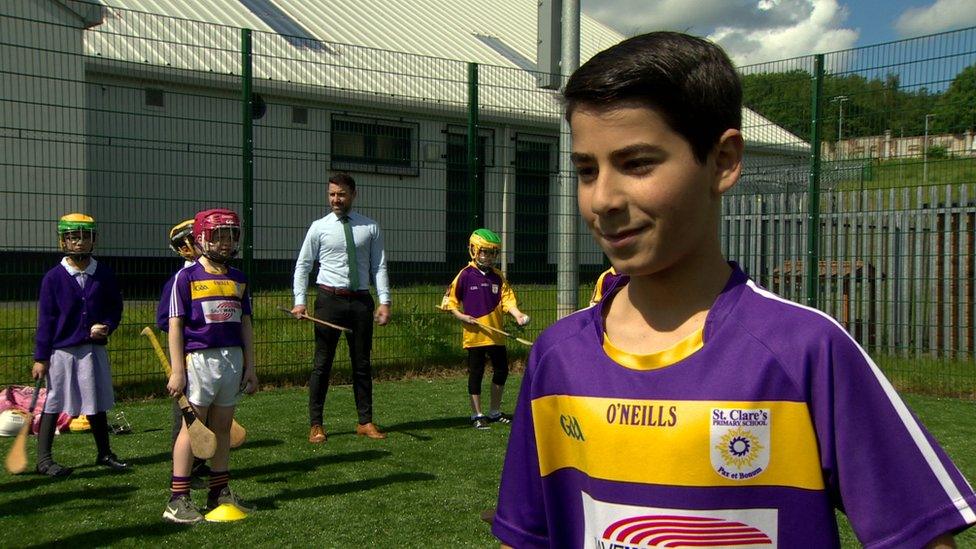
- Published10 November 2022
